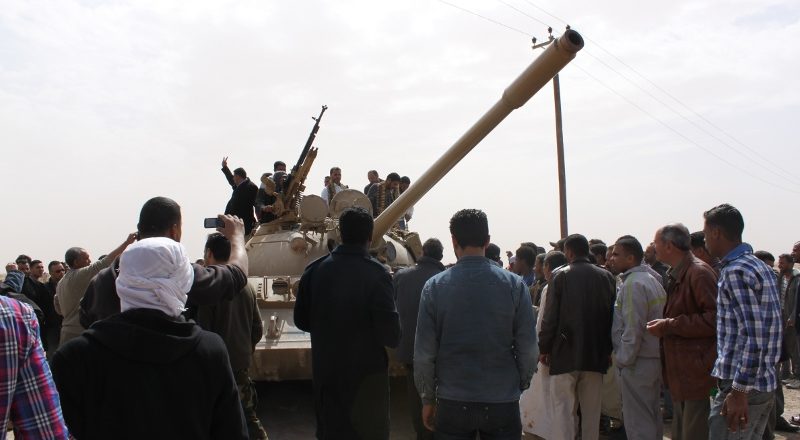A nation must think before it acts.
On August 1, the Obama administration announced a series of airstrikes against Islamic State positions in the Libyan city of Sirte, in coordination with a ground assault by Libya’s internationally recognized, Tripoli-based Government of National Accord (GNA). The new mission marks a significant escalation: while the United States has carried out targeted air strikes against ISIS leaders and training camps in Libya over the past year, it has now picked a side in the country’s civil war—the GNA.
The GNA’s attempt to dislodge ISIS from Sirte will present the UN-supported unity government with a critical test. The stakes are equally high for ISIS: If it secures a strong foothold in Libya, militants could use it as a springboard for further attacks in Europe, compensating for its territorial losses in Syria and Iraq. Libya’s wider stability is also a pressing issue, because hundreds of thousands of refugees have traveled from Libya to Europe, with thousands drowning along the way.
Libya has a particular resonance for Obama. After NATO acted as the air arm of the Libyan rebels in 2011 as part of an international campaign to topple Muammar Qaddafi, the coalition and Washington took their eye off Libya. Subsequently, the country collapsed into anarchy as rival militias dueled for power, turning the country into a “shit show,” as Obama put it privately. The original sin in Libya, Obama now admits, was short-term thinking. In April, hesaid his administration’s worst mistake was its failure to plan for “the day after” the Libya intervention. Last week in a press conference, he reiterated “that all of us . . . were not sufficiently attentive to what had to happen the day after, and the day after, and the day after that in order to ensure that there were strong structures in place to assure basic security and peace inside of Libya.”
Based on the conduct of the Libya operation so far, however, the sin of short-termism is still very much evident. Indeed, the Obama Doctrine has encouraged an improvisational view of war based on putting out fires rather than pursuing a coherent long-term strategy. As a result, there’s no guarantee that the new mission will produce more enduring results than the previous campaign in 2011.
Continue reading, “How Not to Plan for ‘The Day After’ In Libya”




